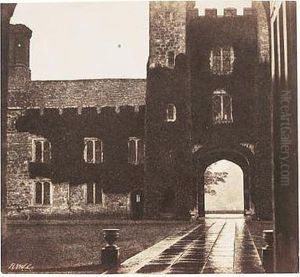R.W.Skeffington Lutwidge Paintings
R.W. Skeffington Lutwidge, born in 1802, was not primarily known for his artistic endeavors but rather for his significant role in the life of one of the 19th century's most enigmatic literary figures, Lewis Carroll. Lutwidge's connection to the arts, however, is not to be entirely dismissed, as his familial and social circles intersected with the cultural milieu of Victorian England, a period rife with a renaissance in literature, photography, and the visual arts.
Lutwidge's professional life was largely dedicated to the legal and administrative sectors. He was a member of the British civil service, where he demonstrated a keen aptitude for the intricacies of law and governance. His work, however, would become a footnote in the annals of literary history due to his familial connection to Charles Lutwidge Dodgson, better known by his pen name, Lewis Carroll. As Carroll's uncle, Skeffington Lutwidge played a pivotal role in the early life and development of the future author of 'Alice's Adventures in Wonderland'. It is within this context that Lutwidge's life takes on a particular interest for scholars and enthusiasts of Carroll's work.
Despite the lack of direct contributions to the arts, Skeffington Lutwidge's influence permeated through his support and encouragement of Carroll's pursuits. The Victorian era was a time of great innovation and evolution in the arts, and Carroll's literary and photographic works are often celebrated for their imaginative and pioneering qualities. Lutwidge's support of his nephew's endeavors, therefore, indirectly contributed to the rich tapestry of 19th-century British culture.
Skeffington Lutwidge's death in 1873 marked the end of a life that, while not artistically prolific in its own right, played a significant role in the backdrop to one of the most beloved stories in English literature. His legacy, though overshadowed by the towering achievements of his nephew, remains a fascinating footnote in the study of the cultural and familial influences that shaped Lewis Carroll and, by extension, the development of literary and artistic expression during the Victorian era.
